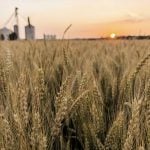Farmers using zero till reported yields of two tons per hectare while some farmers using conventional practices lost their entire crop
Kazakhstan’s 2012 drought and high temperatures cut the country’s wheat harvests by more than half from 2011 output, but wheat under zero-tillage practices gave up to three times more grain than conventionally cultivated crops. Two million hectares are currently under zero tillage, making Kazakhstan one of the top 10 countries for conservation agriculture and helping




